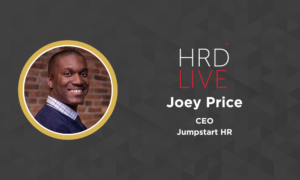Growing future leaders
- 5 Min Read
No longer are self-driving cars, advanced robotics or algorithms that set bail terms for offenders or that order stock without human input futuristic scenarios. Occupational psychologist Dr. Ines Wichert discusses how to develop leaders in uncertain times.
- Author: Dr Ines Wichert
- Date published: Oct 30, 2018
- Categories

What seemed futuristic just a decade ago has now very much become a reality. Furthermore, ongoing digital disruption, unpredictable outcomes from major political elections and increased global volatility caused by trade wars and Brexit create a challenging environment in which current and future leaders must learn to thrive. To be well-equipped to lead successfully in this VUCA (volatility, uncertainty, complexity, ambiguity) world, leaders must have experienced a range of different challenges and have worked in a variety of roles.
 Many organisations are already expressing concerns about the capabilities of their current leaders to lead their organiaations successfully into the future. Furthermore, the very group of people from which organisations will draw this new generation of leaders, the millennials, are hungry for development and fast progression. Organisations must implementing the seven building blocks of accelerated leadership development to build a new cohort of leaders.
Many organisations are already expressing concerns about the capabilities of their current leaders to lead their organiaations successfully into the future. Furthermore, the very group of people from which organisations will draw this new generation of leaders, the millennials, are hungry for development and fast progression. Organisations must implementing the seven building blocks of accelerated leadership development to build a new cohort of leaders.
Potential. Identifying and assessing leadership potential. At its most fundamental, potential is about the readiness to take on new challenges, the willingness to learn from these challenges and the ability to apply the learning to new situations. For each significant transition on an emerging leader’s journey, such as the transition from an individual contributor to being a team leader or from leading a function to leading an entire business requires additional capabilities that should be assessed ahead of the transition. Potential must be re-assessed periodically to check that the accelerated route is still the right path for the leader.
Breadth of experience. To develop well-rounded leaders fast, organisations must be clear about the types of roles and stretch assignments that are most developmental for these future leaders. Example for some of the most developmental roles include leading a change management programme, building something from scratch, for example a new team, product or production site; or working abroad. These experiences provide valuable development opportunities for any leader, irrespective of their industry, function or the business cycle their organisation finds itself in. While emerging leaders must take personal responsibility for securing such stretch assignments, organisations can support a high-potential employee’s development by putting in place organisational programmes and processes to rotate leaders through such experiences.
Risk-taking. Organisations must be ready to post not yet fully-proven talent into more senior or significantly different roles to accelerate and broaden their learning. One example of how organisations can manage the increased risks associated with this is choosing developmental roles that are well-established and well-known so that early signs of derailment can be spotted easily and that experienced leaders who are familiar with the role can be drawn upon for support. Individuals must also be ready to leave behind successful roles to take on stretching and unfamiliar roles where success is not guaranteed.
On-the-job learning. Learning is most effective and developmental when acquired through practical experience. Classroom learning cannot provide the same immersive development experience as learning on-the-job with all its unpredictability, nuances and real-life challenges. On the job learning can take place through formal rotation programmes, one-off stretch assignments, action-learning projects or shadowing.
Consolidation phases. While it may sound paradoxical to talk about consolidation as part of a framework for acceleration, occasional consolidation phases, either as an additional year in an existing job or a short step back by taking a less challenging role, allows an accelerated leader to consolidate all their learning from previous stretch assignments. It also helps the person to catch their breath and top up resilience resources. This, in turn, will reduce the likelihood of burnout and therefore indirectly help the leader to progress at speed.
Support systems. Having support in place either through other people like mentors, coaches or managers and through infrastructure such as regular review meetings can greatly reduce the risks of burnout and derailment and help leaders transition successfully to new challenges. When we put in place support system, we must not only focus on who is available to provide support but also what types of support they are providing. High-potential leaders need access to the right information, the right contacts, practical help, and emotional support. We must also ensure that this support is equally available to all our high-potential candidates to guarantee that we are inclusive and that we foster diversity in our leadership development pipeline.
Reflective learning. It is not the experience itself but the learning we draw from it that leads to development. Personal reflection, which is about taking a step back to review what we can learn from a situation, helps to maximise the learning that a leader can extract from each experience. Regular reflection allows an accelerated leader to avoid making the same mistake twice, getting up to speed faster in new situations and dealing more effectively with unexpected events.
Finally, to ensure that programmes work effectively to the intended target group, organisations must be mindful of additional challenges for talent pools such as millennials or women.









